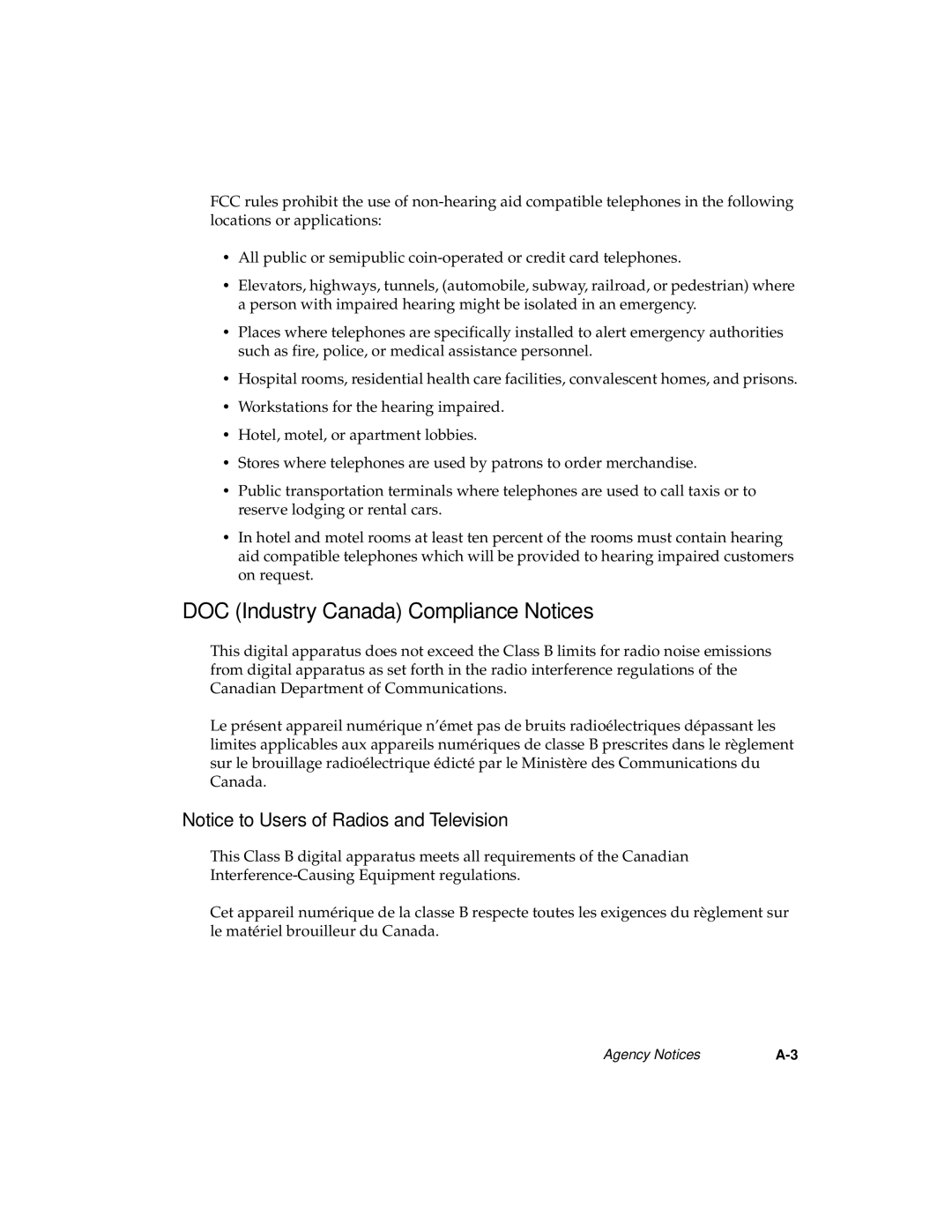FCC rules prohibit the use of
•All public or semipublic
•Elevators, highways, tunnels, (automobile, subway, railroad, or pedestrian) where a person with impaired hearing might be isolated in an emergency.
•Places where telephones are specifically installed to alert emergency authorities such as fire, police, or medical assistance personnel.
•Hospital rooms, residential health care facilities, convalescent homes, and prisons.
•Workstations for the hearing impaired.
•Hotel, motel, or apartment lobbies.
•Stores where telephones are used by patrons to order merchandise.
•Public transportation terminals where telephones are used to call taxis or to reserve lodging or rental cars.
•In hotel and motel rooms at least ten percent of the rooms must contain hearing aid compatible telephones which will be provided to hearing impaired customers on request.
DOC (Industry Canada) Compliance Notices
This digital apparatus does not exceed the Class B limits for radio noise emissions from digital apparatus as set forth in the radio interference regulations of the Canadian Department of Communications.
Le présent appareil numérique n’émet pas de bruits radioélectriques dépassant les limites applicables aux appareils numériques de classe B prescrites dans le règlement sur le brouillage radioélectrique édicté par le Ministère des Communications du Canada.
Notice to Users of Radios and Television
This Class B digital apparatus meets all requirements of the Canadian
Cet appareil numérique de la classe B respecte toutes les exigences du règlement sur le matériel brouilleur du Canada.
Agency Notices |
